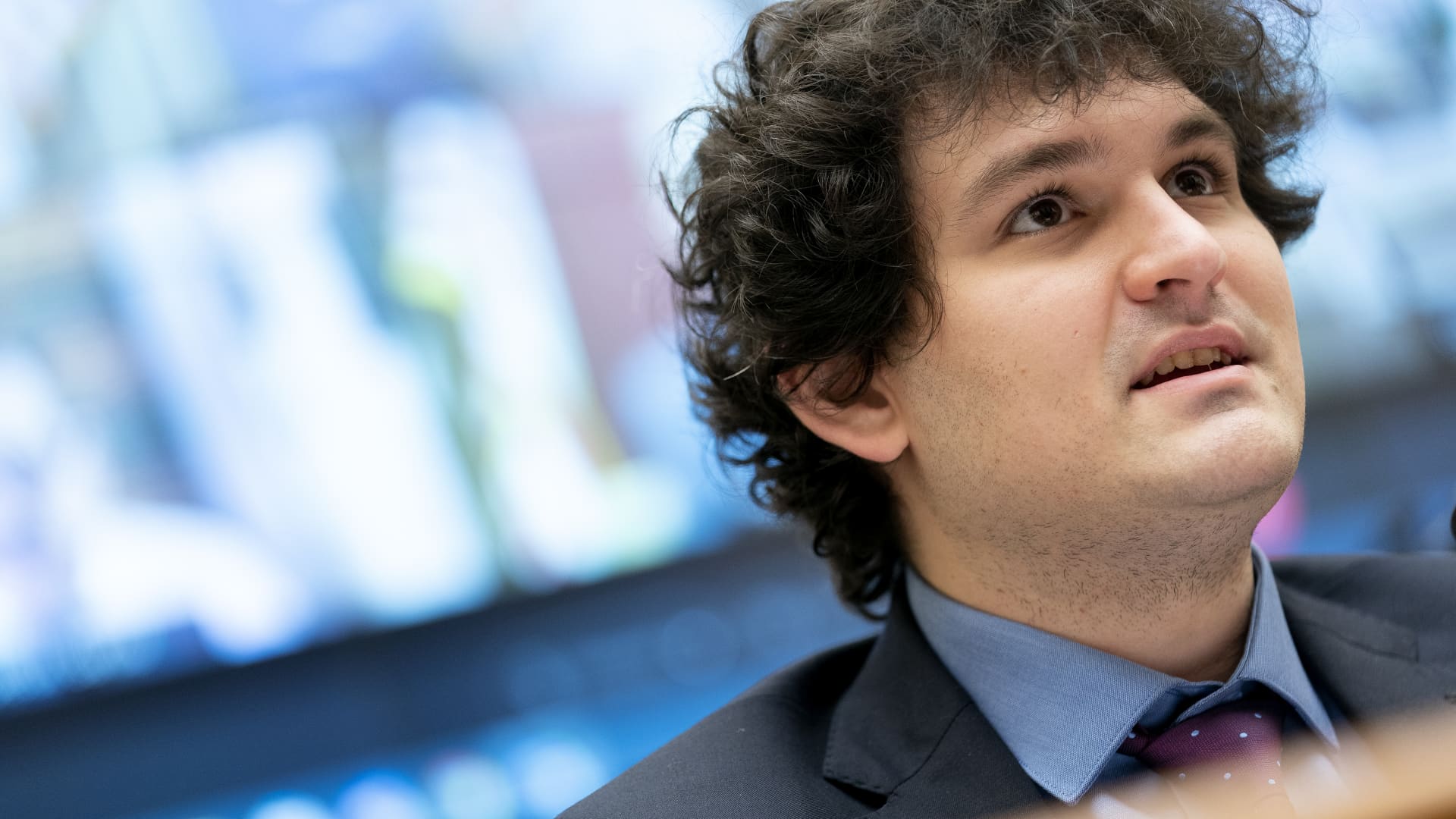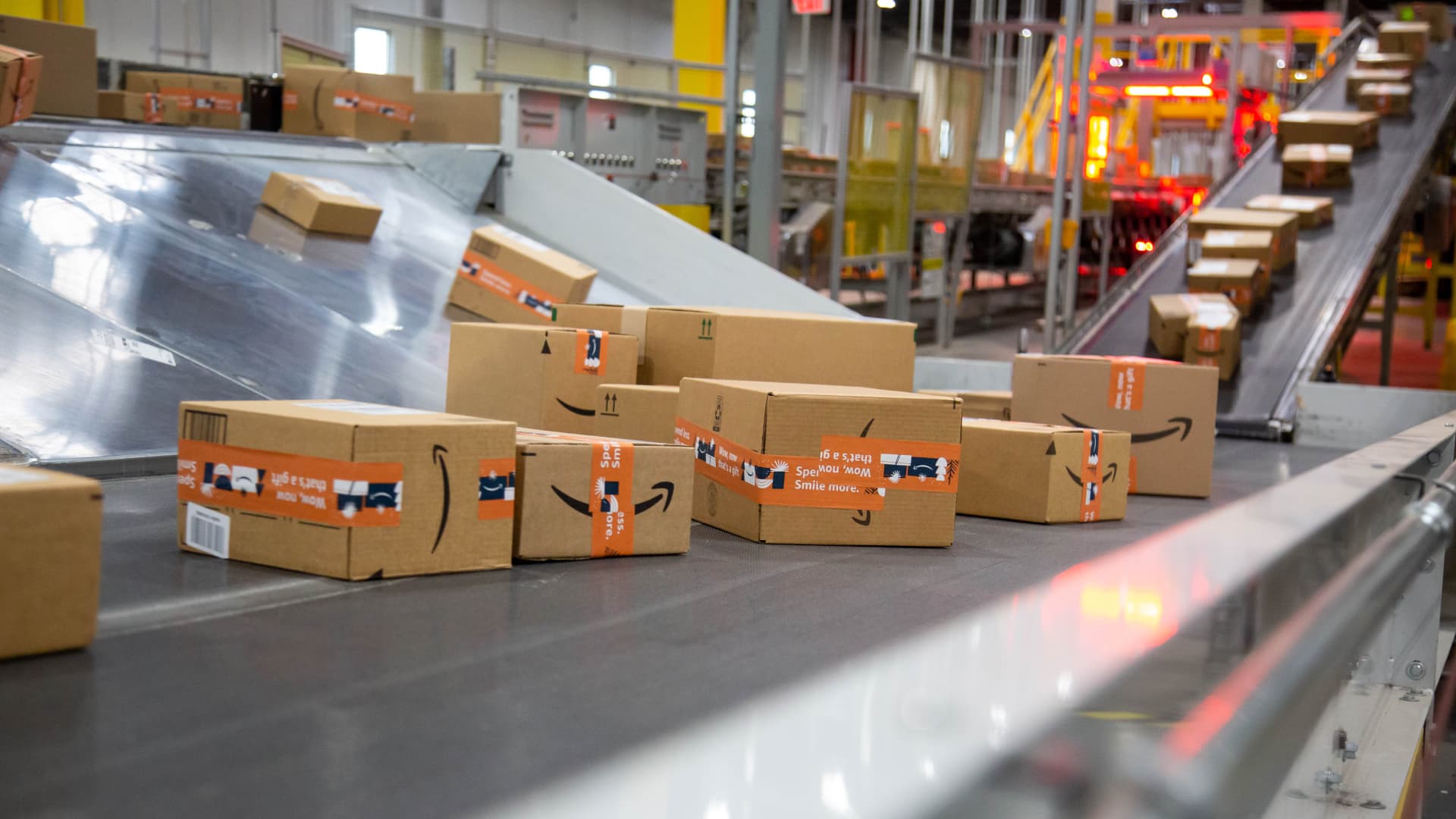This startup’s chemically engineered water filtration system helps large farms and industrial processors recycle their wastewater

The wastewater reprocessing startup ZwitterCo has raised $33 million to scale up its chemically engineered membrane water filtration technology to help industrial companies and large farms recycle wastewater from their systems, allowing them to use less fresh water.
“The goal for us is to maximize reuse, so that you can limit the amount of freshwater consumption,” CEO and cofounder Alex Rappaport told CNBC in a video interview. “We’re going to enable a future of water abundance.”
related investing news
That’s important now because climate change is increasingly making fresh water a scarce commodity. Currently, 37% of the United States and 44% of the lower 48 states are in a drought, according to the National Integrated Drought Information System.
“The world is getting hotter and, in many places, drier. Demand for water outstrips supply in much of the United States, including the Colorado River Basin, which is at its lowest level in 1,000 years,” Jason Pontin, a partner at DCVC, the venture capital firm that is leading this funding round, explained in a post about their investment.
“But Americans also waste a lot of water: every day, industrial facilities in the U.S. discharge 255 billion gallons of wastewater into public waterways,” said Pontin, who is also the chair of ZwitterCo’s board. “Most of that is treated through chemical, physical, or biological means, but it’s still not pure enough for industrial reuse. If it were, then facilities wouldn’t discharge it.”
That’s the problem ZwitterCo is solving with its membrane technology made of so-called “zwitterionic copolymers” — hence the company’s name — which was first developed by the chemical engineering professor Ayse Asatekin at Tufts University.
What is a zwitterionic membrane?
Decades worth of previous efforts to develop water filtration technology for industrial use cases have been stymied by a problem called “membrane fouling,” which means the pores of the filter get so clogged up so frequently that it takes too much time to clean them.
That’s especially true of the kind of materials that need to be taken out of wastewater from an industrial factory or large agricultural farm, like fats, oils and greases.
ZwitterCo’s technology, the zwitterions, are so good at sucking up water, they actually wick moisture out of the air, Rappaport told CNBC.
A filtration membrane looks something akin to a sponge when you zoom in really close, and it’s the width of that sponge, or the height of the pores, that’s the hardest part to keep clean. But the ZwitterCo membrane’s pores act as sort of vacuums for the water, pulling the water molecules out of the oils.
“Because the membrane is so, so, very hydrophilic from these zwitterions, you’re able to operate for years in environments that another membrane would be ruined in hours,” Rappaport told CNBC. That’s “because you’re constantly able to sort of re-wet, re-hydrate the surface and regenerate it back to the starting performance.”
What’s really critical to winning customers is that the system can save customers money in addition to water, according to Rappaport. Exactly how much money and water depends on the farm or industrial facility.
“In the absence of having efficient tools to extract all of those contaminants out of the water, you’re sort of stuck.” Other options include hauling it away, dumping it down the drain, or coordinating with regulators to spread some quantities of the waste out over the land, Rappaport told CNBC. ZwitterCo’s technology reduces those costs.
For Solugen, a Houston-based company that manufactures chemicals and materials using enzymes, ZwitterCo’s water filtration system has let it recycle about 10 million gallons of water in the last year, according to an estimate from cofounder and CTO Sean Hunt.
“Our first manufacturing facility, Bioforge 1, is a zero discharge facility in that we do not have air or wastewater emissions. ZwitterCo’s membranes are a key technology in our toolbox,” Hunt told CNBC. “Our process water recycling loop is north of 20 gallons per minute, and it goes through various membrane, recovery, and reuse steps to conserve and recycle our process water back to the front-end of Bioforge 1.”
In many cases, such as in manure digestate treatment, meat and poultry treatment, dairy waste water, and bioprocessing applications, the material that is filtered out with ZwitterCo’s membranes can be resold as fertilizer or feedstocks, creating a new revenue stream.
“So in the meat and poultry industry, the fats and oils we take out can be sold in pet food. In the bio processing industry, the cellular material that we can take out can be sold as an organic feedstock to help serve as a high protein diet for the livestock. In the manure industry, the organics that get taken out can be a fertilizer,” Rappaport told CNBC. “So the goal is create value on both sides of the membrane.”
ZwitterCo was launched in 2018 and subsisted on grants for its first year and a half, including $1.25 million from the Department of Energy. Rappaport and his co-founders, Christopher Drover and Chris Roy, primarily spent the early years figuring out how to take the research from Asatekin’s lab and turn that into a product that could be manufactured and commercialized at scale.
The $33 million ZwitterCo is announcing Thursday brings total funding raised to $44 million and will allow ZwitterCo to complete the build out of a 30,000 square foot facility in Woburn, Massachusetts. There are currently 50 full-time employees and while the company is making revenue from 16 clients, it’s not yet turning a profit.
This funding will also go partly toward hiring more people to work with industrial clients to tailor the ZwitterCo installation to the needs of the client. The cost of installing a ZwitterCo water filtration system varies tremendously depending on the customer, but can run between five and seven figures, Rappaport told CNBC. This is on par with the infrastructure improvements that factories and farms make regularly, he said.
This post has been syndicated from a third-party source. View the original article here.





